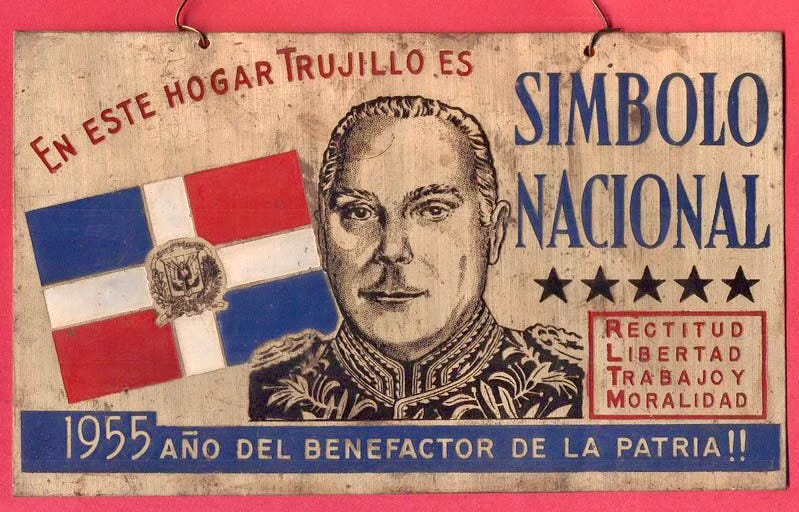‘Who Are We?’ &c.
On Trump’s court; singers and their voices; the colorful fall; and more
It is an old, old question, asked by tribes, nations, and peoples: “Who are we?” This was the title of a book that Samuel P. Huntington wrote late in his illustrious career.
I thought of it when listening to Stephen Miller, the presidential aide, last week. He is sometimes thought of as the “shadow president.”
With the attorney general and the secretary of homeland security sitting beside him, Miller said to Trump:
“Let me just say, Mr. President, that this country was going to die without you. This country was going to actually die without you. That’s what we were facing in 2024.”
Miller went on to say:
“This was a country on the verge of dying, and you alone saved it.”
In my opinion, this is not how the citizen of a republic talks. It is certainly how a courtier in a dictatorship talks. We have seen this throughout history.
(Readers might be interested in a book of mine—a peculiar book—about dictators and their families.)
When I discussed this matter elsewhere online, a reader pointed to Vyacheslav Volodin—an excellent thought to have, in connection with Stephen Miller.
Volodin is a Putin toady who functions as the chairman of the Duma, the pretend parliament. Infamously, Volodin said, “There is no Russia without Putin.”
More than once, Vladimir Kara-Murza, the Russian democracy leader, has called this statement “probably the most insulting thing I have ever heard said about my country.”
I have read many books about dictatorship—dictatorships of all kinds—and done a fair amount of writing myself. The very best depiction of a dictatorship, perhaps, is a novel—a novel by Mario Vargas Llosa.
It is The Feast of the Goat, about Trujillo in the Dominican Republic. It shows, uncannily, what a dictatorship and its court are like.
“Benefactor,” they called him (in real life). They would say things like, “Oh, Benefactor, you put this nation on your back.”
So, I ask of us Americans: Who are we? I remember, too, what Ernest Renan said (I have been quoting this statement a lot lately): “A nation is a daily plebiscite.” If we are wobbly today, we can straighten up and fly right tomorrow.
(The same is true of an individual, as Renan said.)
Did Abraham Lincoln “save the Union”? More than any other individual, I think, he did. Has Donald Trump “saved” this country, which was “on the verge of dying”? As I believe some girls said in junior high, “Gag me with a spoon.”
Not a few of us think the country needs saving from Trump and Trumpism, along with other isms.
***
Back to Ernest Renan for a second. He was a 19th-century French scholar, versatile in his interests and areas of expertise. Do you know that, in the first decade of the 20th century, the government in Paris named a warship after him? Yes. The French navy had a cruiser called “the Ernest Renan.”
A nation that names its warships after intellectuals—that is une nation particulière.
***
Trump likes to talk about running for a third term in 2028. He keeps caps on his desk in the Oval Office that say “Trump 2028.”
“He’s just trolling,” some Republicans like to say. (A) Is he? (B) If he is, is that how a president should behave?
Today, you can hear “soft” Trumpers, or anti-anti-Trumpers, say, “Of course Trump can’t have a third term. The Constitution forbids it.”
But what if he goes ahead and tries for one? Will the “softies” remain opposed? Or will they ... adjust?
I have seen this movie before. I know this crowd like the back of my hand. After January 6, Trump was finished, in their minds. “We can never have him near power again,” they said.
But they soon ... adjusted ...
Watch.
***
You may have caught James Lankford, the senator from Oklahoma (Republican). Administration officials are not briefing Congress about the administration’s military strikes on Venezuelan vessels. If this were happening “under the Biden administration,” said Lankford, “I’d be apoplectic.”
A candid admission, which I applaud, though the admission may be sad and infuriating.
Tribe before country, party before country, of course. (Don’t Republicans say “America First”?)
I thought of another GOP senator, Lindsey Graham, who also has bouts of candor now and then.
After the Saudi dictatorship murdered Jamal Khashoggi, Graham had this to say, about the soft-pedaling of the murder by U.S. officials:
“I would imagine if they were in a Democratic administration, I would be all over them for being in the pocket of Saudi Arabia.”
Refreshing (in a way).
***
“Benita Valente, Acclaimed Bel Canto Soprano, Is Dead at 91.” For that obit, go here. She was a wonderful singer. She was also a friend of some friends of mine. I met her once, in Philadelphia. Got a kick out of it.
I have quoted her a number of times on the subject of voice types. Our voice is our voice. There is not much we can do about it (though we can work to make the most of what we have).
Diana Damrau, the German soprano, once said to me in an interview: “Your voice is your voice. You can’t go to the store and trade it in for another one.”
She herself is a high, lightish lyric soprano. So was Valente.
Unless I am mistaken, Valente once said something like this: “If I could be Birgit Nilsson [a powerful dramatic soprano] for just a weekend, I would start singing on Friday night and not stop until Sunday night, and just peel the paint off the walls.”
***
Years ago, someone said to Irving Kristol, “Isn’t our country, our civilization, in decline?” Kristol reflected and said, “Yes, but one can still live well.”
I may be off on a detail or word or two—but the basic story is correct.
Which leads me to say: In the midst of a Trumpified America, at least I can read Matt Labash, which is a gas and a balm. Here is his latest.
***
When you write about Grigory Sokolov, the Soviet-born pianist, you inevitably quote Bum Phillips, the late football coach. Or at least I do, or did, in The Dispatch last month.
A friend now reminds me of one of Bum’s signature lines. Hailing a fellow coach, Paul “Bear” Bryant, Bum said, “The Bear could take his’n and beat your’n, and he could take your’n and beat his’n.”
This made me think of an old friend of mine, who worked on the grounds crew of a golf course, where I, too, worked. He was a gent from Cullman, Alabama.
Which ball was whose in the fairway or in the rough, as the case may have been? “Well,” Arnie might say, “that’s his’n, that’s your’n, and that’s my’n.”
Miss him.
***
I was walking up the street in Manhattan the other day. There was a family, which included two boys. One of the boys—maybe five years old—pointed to a mailman’s truck, which was parked, and said, “That says ‘Out of Service.’”
His dad gently replied, “It says ‘United States Postal Service.’”
The boy then said, so sweetly, “Yeah, that makes sense.”
***
Here in the city, fall has fallen. Have a scene from Central Park, snapped this morning:
Have another one, for good measure:
Good to see you, and thanks a million for joining me.






Two comments:
1) Stephen Miller is by far the most dangerous person in the Trump administration. More than Trump himself, I believe.
2) How many states will let Trump on their ballot if he tries to "run" in 2028? States control elections, not the federal government.
Thank you as always, Mr. Nordlinger.
I often smile while reading Jay's columns. The photographs are an extra benefit and there are few other people who can make NYC look good. Congratulations Jay! Jay makes me think, as with today's column. What did we get with Trump? Did we get a potential dictatorship and if so, what does that mean? Having lived abroad, a free America is critical to the well being of its citizens.